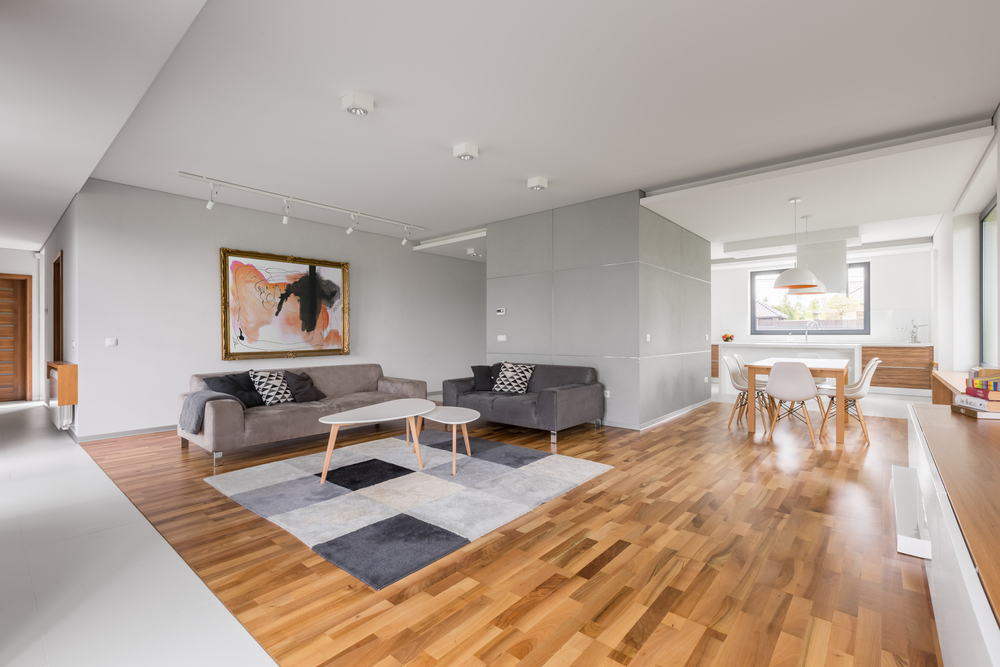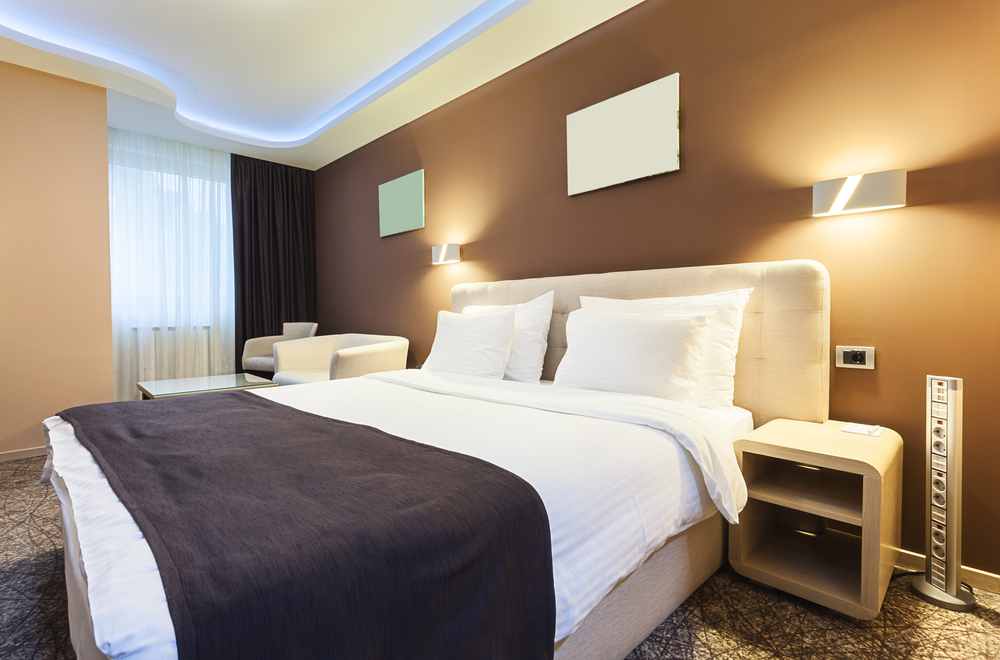Spending a single evening in a hotel is often considered pricey for the average person, so actually living in a hotel may seem like an unnecessary and expensive situation.
Yet people take up long-term residence in hotels and motels all over North America—some living in them for years on end.
How do they do it, and how much does it cost to live in a hotel?
Based on the average cost of a hotel room falling between $100 and $200, living in a hotel for a month would cost you anywhere from $2,800 to over $6,000.
However, this does not take into account any special deals or traveler points people may use for more affordable accommodations, nor does it calculate the savings someone can get with a pre-negotiated long-term rate.
The truth is that there are a lot of things that may affect the cost of living in a hotel, and it’s important to consider each factor before moving in.
Table of Contents
Is living in a hotel cheaper than renting an apartment?

Rent prices vary greatly all around North America (and the world), as do hotel room prices. But considering rent averages are between $1,500 and $2,000 a month, the result is that living in a hotel is typically more expensive than renting an apartment.
There are nevertheless realistic scenarios in which a person could go from living in a high-end “luxury” apartment to a budget motel and end up saving on living costs each month.
However, these are case-by-case basis and do not have an impact on overall averages.
What the law says about living in a hotel
Each state and jurisdiction have their own laws governing hotel room stays and tenancy. While general rules do not limit how long guests can stay, some areas have rules that may make it more difficult to stay somewhere for more than a few weeks.
For example, in California, a person staying in a hotel is automatically considered a legal tenant after staying there as a guest for over 30 consecutive days.
In cases like this, the hotel becomes a landlord under the eyes of the law and is subject to more legal boundaries and requirements regarding when they can enter the occupied hotel room, when/if they can ask the “tenant” to leave, and the level of maintenance required.
Do hotels limit how long you can stay?

Not all hotels permit long-term residents, and it is important to check the rules on this ahead of time.
Some hotels in the United States have rules in place that limit the number of days a guest can stay.
This is done for liability reasons, to comply with local laws, and to make sure the rooms do not incur more than the usual amount of wear and tear from the people who stay in them.
Can you live in a hotel permanently?
At a hotel with no rules limiting how long you can stay; you theoretically can stay permanently as a guest.
However, that doesn’t mean management won’t start inquiring about your intentions (or even wellbeing) if you keep extending your stay and/or are prohibiting the room from being cleaned for a surprising period of time.
Can you renovate a hotel room if you live there?
In almost all situations, tenants who rent their homes are unable to make significant renovations without prior approval from the landlord or property manager.
Hotel guests are likewise prohibited from altering the room they are in, and some properties even have rules against moving the furniture that comes with the room.

So, whether a person living in a hotel is considered a guest or a tenant, they will most likely not be able to make renovations.
Cheap hotels to live in
The cheapest hotels to live in will vary by area, but generally speaking, the most affordable ones to stay in long term will be those marketed as “budget” hotels (or motels) or extended-stay hotels or inns.
Budget hotels tend to offer significantly lower rates than other hotels in the area, though they may not offer as many amenities or be located in the most desirable neighborhoods.
Most hotels marketed toward low budgets have rooms for between $50 and $100 a night, though some in less-frequently traveled areas with minimal amenities are even lower.
Extended-stay hotels can be more affordable than other hotels in the same area because they are designed for longer-term guests.
Many also offer loyalty programs that frequent guests can take advantage of.
The most expensive hotels to live in
The most expensive hotels to live in will almost always be those that have four to five-star ratings and are on the “luxury” spectrum.
Likewise, hotels that are not marketed for “extended stay” may also come at a higher cost.

When do you pay your bill when living at a hotel?
Since most hotel guests pay their bills at the end of their stay, it’s reasonable to wonder when this would happen if you were actually living long-term on the premises.
That vast majority of hotels ask for a credit card upfront for incidental purposes, and they may choose to charge this card every time you decided to extend your stay.
If a long-term or even indefinite stay has been negotiated ahead of time, the payment schedule will likely be every week or month—whatever hotel management deems appropriate.
The benefits of living in a hotel or motel
There are many benefits to living in a hotel, though much of it depends on the type of hotel as well as any long-term agreement that may be in place.
Benefits may include wifi already incorporated into the room payment, a free gym and/or pool, regular room cleaning, maintained common areas, and an overall quiet experience depending on who else is staying at the hotel at any given time.
Some hotels also provide their guests with access to laundry services.
It’s also worth noting that taking up residence in a hotel may be easier for some people than finding a long-term apartment rental or home to purchase.

This is because hotels generally do not ask for references, credit scores, or run background checks on the people who stay there.
The cons of living in a hotel room
The exact number of cons to living in a hotel will depend on your preferences. For example, some people may enjoy the quiet and lack of regular neighbors being nosy and conversational, while others may long for a community they can feel a part of.
In addition to hotel living being generally more expensive than renting an apartment, cons of living full-time in a hotel include not having neighbors you know, being very limited in how you customize your room, having less space (in a lot of cases), having occasionally noisy or rowdy neighbors, not being able to add appliances or furniture, sleeping in a bed many other people have slept in, and a sense of transiency, among other things.
Can pets live in a hotel with you?
This is entirely up to the hotel. Some permit pets (usually with an added fee) while others prohibit them entirely.
Pet-friendly hotels charge anywhere from $10 to $50 on top of your bill, per night. Going on websites like Bring Fido can help you gauge how much a hotel you’re looking at plans to charge for pets.
If planning to live at a hotel long-term with a pet, it is important to discuss ahead of time with management.
Even those that do allow pets typically only plan for them to be there short-term, so extra accommodations may need to be made.
How to find discounts on extended or long-term hotel stays

Many extended stay hotels have membership clubs that allow their guests to build up points and discounts toward future stays.
This setup may be best used in multiple different stays over time.
Travel websites like Expedia or Priceline offer price point comparisons and may help you find the best deals on long-term stays in hotels.
How common is living in a hotel?
It is impossible to say just how many people live in hotels from year to year. While the Census does require hotels to comply with population data for “nontraditional” living situations, this encompasses people in a wide range of scenarios in addition to hotels and motels.
Homeless individuals and hotel residents are also often clumped into the same group of people, making matters even more confusing.

















